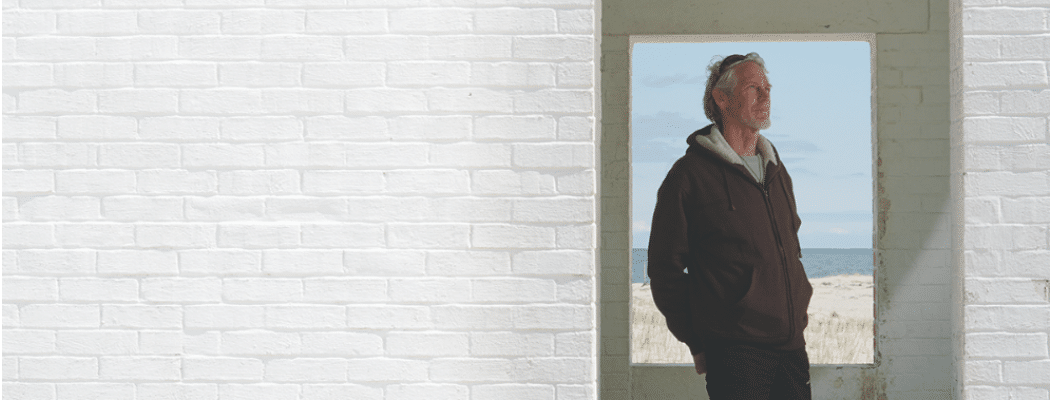Scott Leonard is on a mission to save seals and make Nantucket a Whale Heritage Site.
From its heyday as the whaling capital of the world to the era when islanders were awarded $5 a nose for every seal they slaughtered, Nantucket doesn’t exactly have a warm and fuzzy history when it comes to compassion for marine mammals. But Scott Leonard and the Marine Mammal Alliance Nantucket are out to change that, and they’re taking a very hands-on approach.
 Every week, Leonard and his team save the lives of seals who are tangled up in fishing gear and stranded on the beach. Through a special agreement with the federal government, they are able cut the animal free and return it to the sea unfettered. “These animals don’t want to die,” Leonard says. “You can see the stress, the pain and the fear in their eyes when we rescue them.”
Every week, Leonard and his team save the lives of seals who are tangled up in fishing gear and stranded on the beach. Through a special agreement with the federal government, they are able cut the animal free and return it to the sea unfettered. “These animals don’t want to die,” Leonard says. “You can see the stress, the pain and the fear in their eyes when we rescue them.”
Without Leonard, this entire lifesaving operation would be illegal. The Marine Mammal Protection Act of 1972 forbids humans from coming within 500 feet of seals, even for lifesaving measures. But after establishing the Marine Mammal Alliance nonprofit, Leonard negotiated what’s known as a “stranding agreement” with the federal government that allows his team to make contact with and aid struggling and suffering marine mammals.
Seals have long been a hot button issue on Nantucket. Many fishermen lament that the rising seal population has hurt the island’s game fishing. But Leonard points to studies that show 73 percent of tourists to Nantucket actually hope to see a seal during their visit. “The ocean is what makes Nantucket what it is, and seals are a big part of that,” he says. “If we can create an economy around ecotourism, then there’s value in them.”
Nantucket is one of the few places where humans have such direct contact with seals. “In San Francisco, you can see sea lions on the docks, but they’re roped off. Or in Southern California on Highway 1, you can see elephant seals on the beach, but they’re too far away,” Leonard says. “Here on Nantucket you can walk out onto any beach and there could be a juvenile seal there getting warm.” When people spot seals that are in trouble, they don’t know how best to help. Now they can call Marine Mammal Alliance to respond.
 Entanglements also pose a severe threat to whales, especially right whales, seven of which resided just off the south shore of Nantucket for over a month last summer. Known as the “urban whale” for their migration through the heavily trafficked waters of the northeast corridor, these marine mammals teeter dangerously close to extinction, with only around 450 remaining. “About 85 percent of them have been entangled at some stage in their life,” Leonard says. “Dragging and entanglement causes an extreme amount of stress, so much that they become infertile.” Of this dwindling population of right whales, Leonard also notes that none have given birth to calves this year.
Entanglements also pose a severe threat to whales, especially right whales, seven of which resided just off the south shore of Nantucket for over a month last summer. Known as the “urban whale” for their migration through the heavily trafficked waters of the northeast corridor, these marine mammals teeter dangerously close to extinction, with only around 450 remaining. “About 85 percent of them have been entangled at some stage in their life,” Leonard says. “Dragging and entanglement causes an extreme amount of stress, so much that they become infertile.” Of this dwindling population of right whales, Leonard also notes that none have given birth to calves this year.
In hopes of protecting these magnificent creatures, Leonard and his team of volunteers have begun the application process for establishing Nantucket as a Whale Heritage Site, a rare designation given by the World Cetacean Alliance. He believes that this classification will encourage eco tourism surrounding these massive animals (whale watching is a $2 billion industry), which will garner more public support for their protection. “Whales have a language and a culture, and we relate to them,” Leonard says. “Whale Heritage Sites are trying to use that admiration to enhance ocean protections to create areas that have reasons to protect natural environments.”
 Compounding the monumental challenges of protecting animals in a growingly inhospitable environment, Leonard struggles to hire adequate staff and get them properly trained. “I’ve been doing this as a volunteer for a long time now,” he says. “We have to get to the point that whoever comes in after me will have a paid position. We need funding to make that happen.” Despite his volunteer status, Leonard treats his position with the seriousness of a full-time job, responding to entanglements, writing government proposals and training his team members. In terms of the future of his organization, his goal is to help create a healthy habitat for all, where humans and sea life can live symbiotically. “Hope is a tricky word,” Leonard says, “but the intention is to make things better, specifically around Nantucket.”
Compounding the monumental challenges of protecting animals in a growingly inhospitable environment, Leonard struggles to hire adequate staff and get them properly trained. “I’ve been doing this as a volunteer for a long time now,” he says. “We have to get to the point that whoever comes in after me will have a paid position. We need funding to make that happen.” Despite his volunteer status, Leonard treats his position with the seriousness of a full-time job, responding to entanglements, writing government proposals and training his team members. In terms of the future of his organization, his goal is to help create a healthy habitat for all, where humans and sea life can live symbiotically. “Hope is a tricky word,” Leonard says, “but the intention is to make things better, specifically around Nantucket.”







